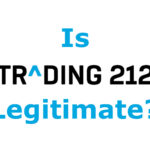Maybe you’ve come into a lump sum, or perhaps finances have simply not been top of your list and you’ve accumulated a sum of money. Either way, it can be quite a daunting experience. In this post, we look at what you should do with a lump sum of money.
Introduction
Whether inheriting a lump sum of money or realising you have accumulated funds over the years, often the catalyst for receiving the money or wanting to do something with it can be emotional. It’s important to stop, think clearly and take your time over any financial decisions.
Whilst some financial decisions are freely reversible some may come at a cost, and some you may not be able to undo at all. It’s important to make any financial decision with a clear mind and a view of your future goals.
Above all else, make sure you understand the implications of any decision you make, and ensure you seek independent financial advice if you are unsure.
Step 1: Hold Money Safely
Depending on how large the lump sum is, your first goal should be storing it safely whilst you think about your next steps.
Most UK banks are protected by the Financial Services Compensation Scheme (FSCS), which protects funds up to £85,000. If your bank goes bust, then you’ll get your money back, up to the £85,000.
This protection only covers £85,000 per individual, not per account. If you need to store more than £85,000 then you should use multiple banks. It’s worth noting that some banks are linked, so you should check if your bank shares FSCS backing with any partners. Ensure you use different financial institutions. Money Saving Expert have a tool to check this.
You may also chose to use Premium Bonds to store your lump sum of money. You can hold up to £50,000 of Premium Bonds and these are fully protected by the UK Government.
The final easy option to store large sums in the Direct Saver from National Savings & Investments. This offers protection on sums up to £2m.
Step 2: Understand Your Financial Position
Before making any big decisions you should understand your current financial position.
Do you have any current debts? What is your current monthly income? What are your current monthly outgoings? Do you have any expected of planned purchases? Is your home / car in a good state of repair?
Most banking apps will let you look across your spending over the last 12 months. They may also automatically categorise your spending. It’s worth looking in th apps to understand where your money is going.
Once you have this information in hand, you can start to work out where your lump sum of money could be well placed to help.
Step 3: Understand Your Financial Goals
In a similar way to understanding your financial position, it’s important to understand your financial goals. These could be short term goals such as paying off a credit card debt or longer term goals such as saving for a house purchase or retirement.
It’s worth writing down what these goals are and the timeframes you wish to achieve them in.
Once you have understood your financial position and your financial goals, it means you can work out the appropriate steps to get there.
Step 4: Pay Off Debts
Compound interest can work both for and against you. in the case of debts it works very much against you.
If you are paying the minimum balance off any credit card debt then you should absolutely prioritise paying off this debt with a lump sum of money. Most credit cards will have extortionate interest rates of upwards of 20% per year. This means your debt could quickly spiral out of control.
You should look to pay off the highest rate debts first.
If your only debts are a mortgage and a student loan, then it may be worth holding on to those debts. These debts are typically much lower interest and in many cases you can earn more in interest (or investment returns) than you pay in interest on the loan. As a result, this can make you a profit.
This however is far from certain, and there are lots of factors such as tax you need to factor in here. You should also consider the peace of mind being debt free comes with.
Step 5: Create An Emergency Fund
An emergency fund is a pot of cash (or cash equivalent) that you can access fast.
The idea is that you keep this pot for genuine emergencies.
his can be for a flat tyre on your car you need to get replaced, or a leaking roof. It could also be there to cover your outgoings should you lose a job for a period of time.
The point of the emergency fund is that you can get to the money when you need it, without damaging your long term financial goals.
If you didn’t have an emergency fund, you may have to compromise a long term financial goal to cover the cost. You could for example have to cash in a long term investment at a stock market low, or have to pay a withdrawal penalty on a fixed term savings account. Both of these would impact your longer term financial goals and cost you more than the actual cost of the emergency.
How Big Should an Emergency Fund be?
Many people will want to balance growing an emergency fund at the same time as paying off debts. If doing so, typically 1 month of funds is a good starting point. For those with no debts, then a 6-9 month emergency fund is usually a good aiming point.
If in a more uncertain situation, such a short term contract or a job paying a large portion of your income in non-gauranteed bonuses, then you may want to consider a larger emergency fund of 12 months or more of expenses.
Your emergency fund should cover any unexpected costs you may encounter, so as a minimum you would want it to cover a problem with your car or boiler for example.
Where to Store an Emergency Fund
The point of an emergency fund is to be accessible in an emergency, hence you should store these funds in a cash or cash equivalent account where you can get your money with no or minimal notice.
Most people will find an instant access high yield savings account to be the best place. You can quickly get hold of your money in a pinch, but you’ll also grow your funds by gaining interest over time.
I use Premium Bonds for my emergency fund. Withdrawals take 2-3 days and winnings on Premium Bonds are tax free. As always, depending on your circumstances and tax bracket then you may be better off with other options.
The key point for an emergency fund is to be easy access, so avoid any fixed terms savings or any investments.
Step 6: Fund Your Financial Goals
Once you’ve got a good grip on the state of your finances, you’ve paid off debts and have en emergency fund sorted it’s time to fund your financial goals.
There are many approaches to reach any goals, so here we cover some of the main options.
Save for a House, or pay off the Mortgage
If you a looking to buy a house then a LISA is a great option. The government will give you a 25% bonus towards a deposit!
If you already have a mortgage then paying this off or overpaying can help save you paying interest in the long run. You may also get a lot of peace of mind from this approach. Remember though that if the interest rate on your mortgage is low enough you may be able to get higher returns by investing elsewhere so you effectively earn money on your mortgage.
As always consider the tax implications of any decision you make.
High Yield Savings Account
A simple, easy approach. Find a savings account offering a good rate of interest and simply put your lump sum of money in. You can pick from easy access, restricted access of fixed term savings. Usually the longer the term, the better the rate.
Savings accounts give the maximum flexibility.
Remember that depending on your tax bracket you may have to declare and pay tax on your interest.
Investing
In our Investing 101 Guide we cover the basics with investing. In short, investing carries more risk that a simple savings account however looking back in time returns have typically been better over a long investing horizon.
Again remember taxes may still be applicable.
Pension
A pension is a very tax efficient way of saving, however you won’t be able to access until you reach retirement age. Whether adding to your workplace pension or using a SIPP, a pension is a great way to ensure your are well set for retirement.
ISAs
ISAs are a great way of protecting your returns from tax. There are many options which we explain in our ISA guide. Trading 212 offer both cash and stocks and shares ISAs, so something to suit every risk appetite.
Lump Sum of Money: Reflections
It’s easy to get overwhelmed with the choices if you have a lump sum of money. The key thing is to take your time and consider your options.
Remember you don’t have to put all of the lump sum of money towards the same goal. You could spread across a few options; perhaps overpaying the mortgage a little and adding to your pension.
It’s also easy to put all of your lump sum of money towards financial goals. Whilst these goals are important, it’s worth remembering money isn’t worth anything if you don’t spend it. I’m particularly bad at this, I’m over cautious and plough all my earnings into saving for my future.
Clearly saving for the future isn’t a bad idea, but do make sure you enjoy your money. Life is about balance, make you you get that balance in the right place for you.








